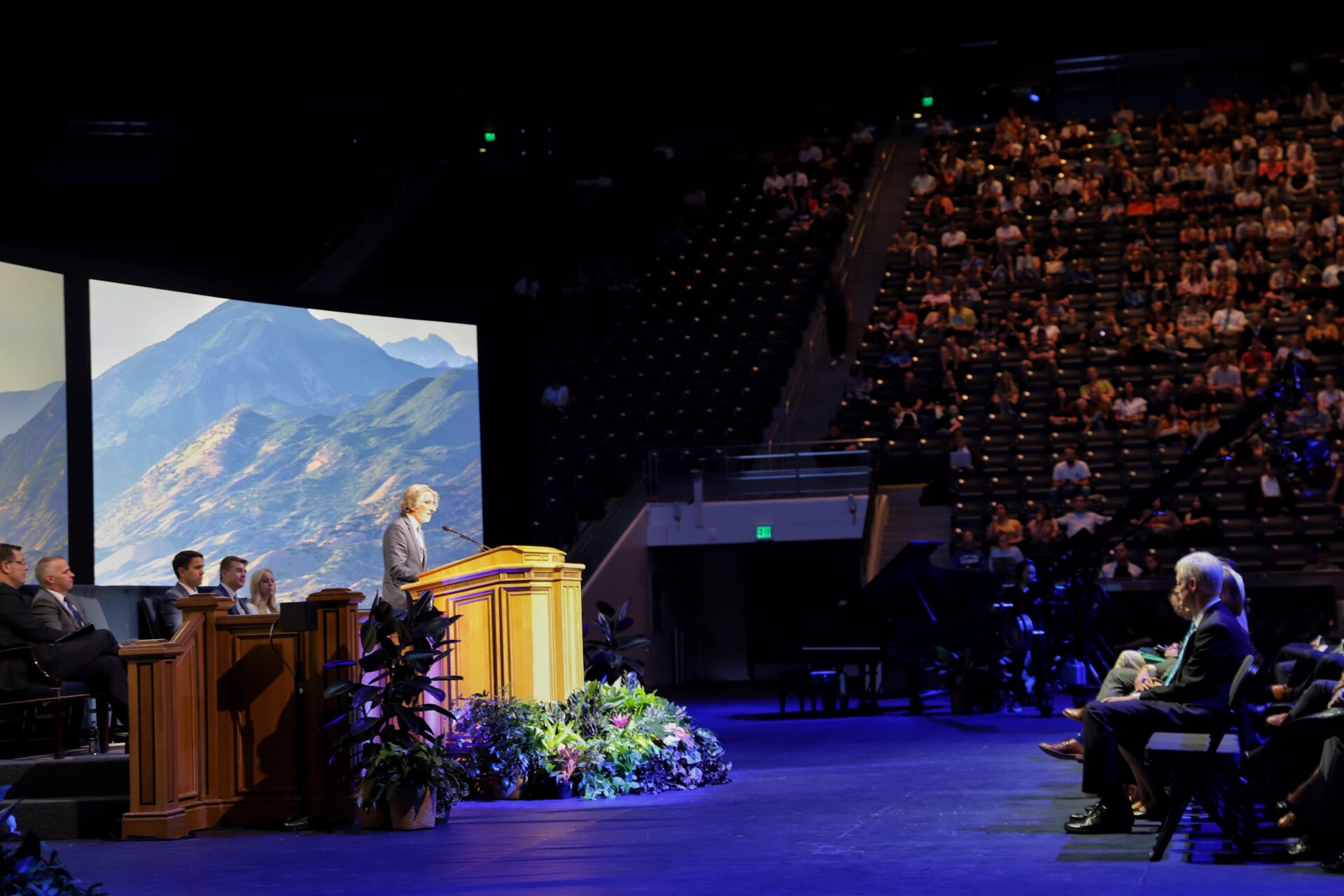
Akhil Reed Amar, a world-renowned scholar of the U.S. Constitution and Sterling Professor of Law and Political Science at Yale University, addressed the campus community on Sept. 26.
Academic Vice President Justin Collings began the forum by introducing Amar. According to Collings, Sept. 17, 1787 was the day the Constitutional Convention chose to introduce the Constitution to the states and reminded students of the Utah legislature’s recent designation to make September Constitution Month.
Amar began his address by commenting on how the diversity of the U.S. provides the country with a unique challenge.
“We Americans … are an extraordinarily diverse group. We don’t have religion in common. We don’t have race in common. We don’t have geography in common, it’s a vast land. We don’t have language in common. We don’t have politics in common,” Amar said. “So what do we have in common?”
According to Amar, the Constitution and the story behind it is something all Americans have in common.
“Without that, there’s no we. Without that kind of narrative, we die, or at least, we risk dying,” Amar said.
Amar explained there are several narratives behind the Constitution with portions of truth, and said most American citizens don’t know the accurate story behind the Constitution.
“The constitution is way more democratic than you were taught … and it’s not really about Madison and the Federalist 10, but it’s actually about national security and geography and geostrategy,” he said.
Amar then brought Utah into the picture and discussed how the then-newly formed state was instrumental in promoting anti-slavery, providing land for freed slaves to settle.
Amar ended his address by echoing how essential it is for U.S. citizens to know their national story in order to unify the nation and let the truth of history speak for itself.




